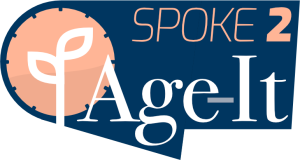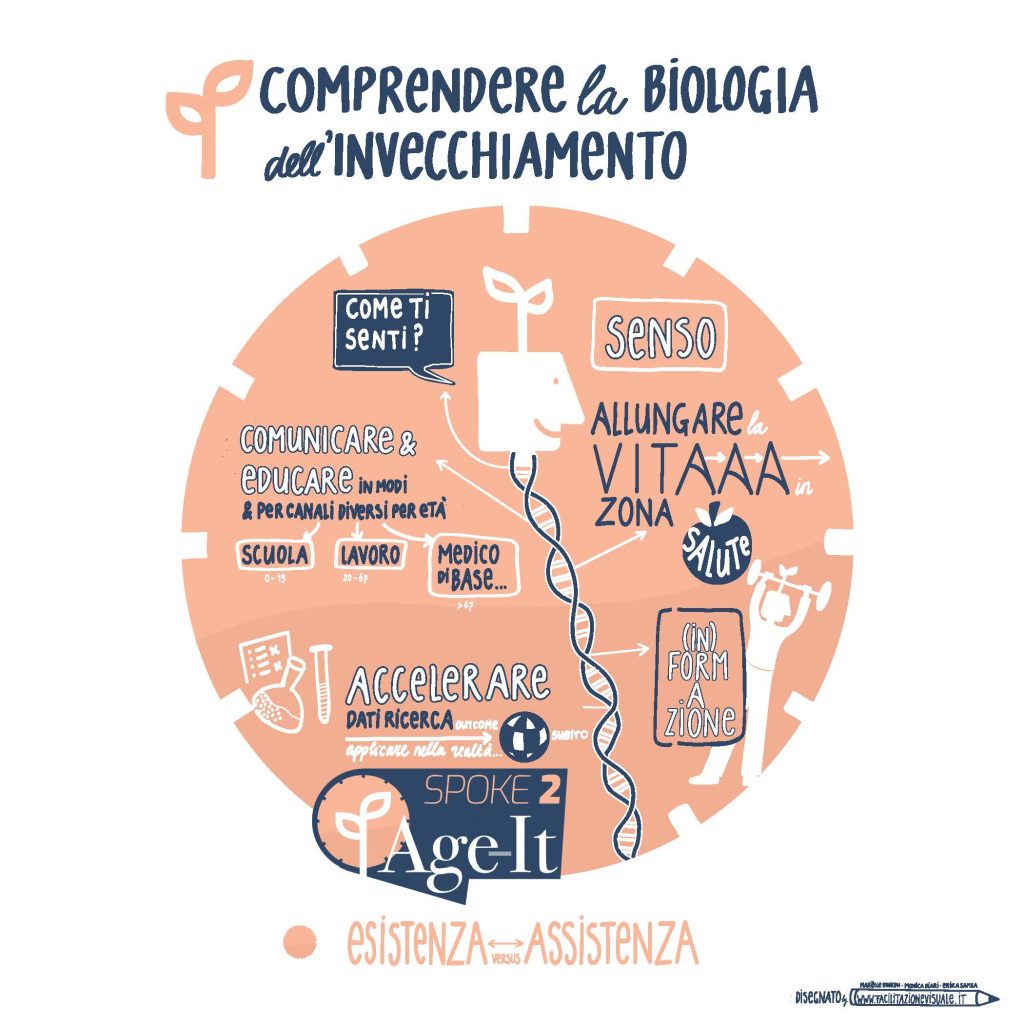
Comprendere la biologia dell’invecchiamento
Leader: Fabrizio d’Adda di Fagagna, CNR
Co-Leader: Marco Sandri, UNIPD
Affiliati: UNICAL, SAPIENZA, INRCA, UNIFI, UNIBA, UNISR, Neuromed, UPO, SISSA
Spoke Themes
This Spoke addresses the intrinsically multifactorial nature of ageing – namely, which are the overarching underlying mechanisms that drive it, and whether and to what extent such mechanisms are at play in different cell types, tissues and organs.
It probes the mechanisms and consequences of ageing by multiple interdisciplinary and often orthogonal approaches, in different cell and animal systems, to generate a set of testable hypotheses, resulting from the integration of several datasets, including omic ones, that will be validated by the use of relevant cell and animal models
Structure
Activities are structured in three main areas of intervention 1) mechanisms of ageing 2) identification and functions of biomarkers 3) therapeutic targets validation. Within each of these three areas, we identified two WPs. The purpose of this structure is to generate know how and identify actionable targets in the first two areas of intervention, so that they can be tested and validated in the third one.
Disciplines
Molecular and cellular biology, chemistry and biochemistry, physics, computer science, gerontology, and epidemiology.

Work Packages
Prof. Antonino Colanzi, CNR
WP1 focuses on the study of the process of cellular senescence and in particular of the senescence-associated secretory phenotype (SASP) which is one of the most impacting features of senescence at the organismal level. SASP regulation, composition and impact in a variety of systems will be studied and compared
Prof. Marco Sandri, UNIPD
WP2 probes the mechanisms of age-related tissue degeneration. Mitochondria dysfunction, autophagy, inflammation and fibrosis can be key drivers of age-related loss of tissue homeostasis, especially in neurodegenerative diseases. This WP will evaluate their impact on tissue degeneration and all mechanistic insights will be of relevance for all other WPs, which themselves will feedback their findings thus generating a virtuous circle.
Prof. Fabrizio Chiti, UNIFI
WP3 is dedicated to the study of the hallmarks of ageing: DNA damage, telomere dysfunction, loss of proteostasis, and novel ones. Indeed, beyond established hallmarks of ageing that will be thoroughly investigated for their mechanisms and their contribution, we will also explore the study of novel, innovative hallmarks of ageing emerging from the literature.
Prof. Giuseppe Passarino, UNICAL
WP4 will exploit different “omics” approaches to the study of ageing. We will use several orthogonal approaches (epigenomics, proteomics, transcriptomics) to identify ageing-specific features and extract meaningful correlations and shared mechanisms controlling the process of ageing also with the support of AI approaches. Biomarkers identified and cross-validated within this WP will be shared within Spoke 3 and exploited to better characterize multimorbidity, frailty and disability phenotypes and stratify hospitalized geriatric patients.
Prof. Fiorenzo Conti, INRCA
WP5 will develop and characterize animal models of ageing. Here human age-related disorders will be modelled in wild-type and transgenic animals providing ad hoc models to study disease onset and development, and set the bases for therapeutic interventions.
Prof. Francesco Giorgino, UNIBA
WP6 will explore the interventions that, supported by the results generated by all other WPs and in relation with the other Spokes, will be designed and tested for efficacy in the modulation of age-related diseases
Key Outputs
- Identification of regulatory pathways and components of chronic inflammation in ageing.
- Identificazione dei biomarcatori dell’invecchiamento
- Study of the impact of pharmacological and environmental interventions on aging
